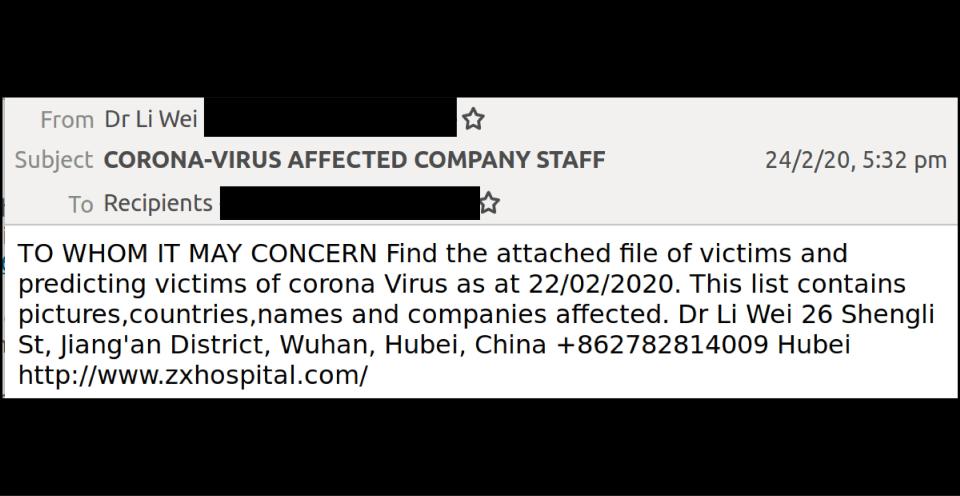Email claims to show coronavirus victims list, places of work
A malicious email is currently spreading, enticing Australians to click on a supposed list of coronavirus victims and their place of work.
Tech security company Mailguard warned on Friday that Australians should not click on any emails from a "Dr Li Wei" with the subject "Corona-virus affected company staff".
The body of the email then claims to have an attached file listing "victims and predicting victims" of the virus.
"This list contains pictures, countries, names and companies affected," the email reads.
The message then signs off with "Dr Li Wei, 26 Shengli St, Jiang'an District, Wuhan, Hubei, China".
When the recipient clicks on the attached file, it downloads malicious software onto the user's computer.

"Cybercriminals behind this scam are tapping into users’ fear and paranoia surrounding the global outbreak of the virus in order to trick users," said a Mailguard spokesperson.
"Coronavirus-themed cyberattacks are designed to play with human psychology and emotions."
The email has used an authoritative-sounding name like Dr Li Wei as the sender name and an alarming subject to whip up urgency and anxiety among recipients.
Worried Australians could click on "the list" to check for familiar names and employers, without checking for the authenticity of the message.
"Despite these techniques, eagle-eyed recipients of this email would be able to spot several red flags that point to the email’s in-authenticity," the Mailguard spokesperson said.
"These include the fact that the email doesn’t address the recipient directly, and that it contains several grammatical and spacing errors."
The coronavirus, officially known as COVID-19, has so far claimed 82,000 victims worldwide after originating from the Chinese city of Wuhan.
Make your money work with Yahoo Finance’s daily newsletter. Sign up here and stay on top of the latest money, news and tech news.
Follow Yahoo Finance Australia on Facebook, Twitter, Instagram and LinkedIn.

 Yahoo Finance
Yahoo Finance 